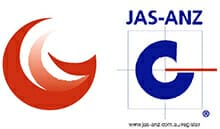Foundation bolts, also known as anchor bolts, are used for many industrial and civil engineering purposes. Typically, they secure structural elements to foundations, but they serve other significant functions, such as moving heavy objects and fastening heavy machines to foundations to ensure safe and effective operation. This range means selecting the right choice among the different foundation bolt types is crucial. Your chosen bolt should withstand the forces it will experience in action and work well with the structural elements and machinery you’re employing. We’ve put together a guide to help you make this decision, whether you’re looking for a typical anchor bolt or a less common variety.
Cast-in-place bolts
At their most basic, cast-in-place anchors are straight bolts inserted into concrete foundations. Often, the inserted end includes a nut and a small steel plate to increase its holding strength. The other end is corkscrewed. This end connects concrete or steel structures to the foundation. Multiple variants have been developed from this basic design, specialising by application. One variety is the headed anchor bolt. Headed anchor bolts have a hexagonal or square head, providing more support than the basic design. Sleeve anchor bolts are favoured for construction involving bricks, as their longer length suits this material.
Eye foundation bolts
Eye foundation bolts bend into an eye shape at one end and are attached to a cross piece at the other for easy setting into a concrete foundation. These pieces are your best choice for firmly securing cables and steel rods, helping structural elements withstand strong movements and pressure while allowing secured components to move if required.
Bent-bar anchor bolts
Instead of securing cables, the typical application of J and L type foundation bolts is to hold together heavy structural elements. These anchor bolts bend at one end to provide firmer support when set into wet concrete and see use across the construction industry and civil engineering projects. The L-type foundation bolt has industrial applications, such as anchoring tooling, equipment and structural columns to concrete structures. The L-type bolt is a fantastic choice for lighter-weight uses. Civil engineers frequently choose these bolts to fasten poles, signs and rails.
Swedge bolts
Swedge bolts are round bars with a threaded end and a swedged end. ‘Swedge’ refers to the serrated indentations made on the bar, which considerably improves the grip of the foundation bolt in the concrete. Swedge bolts are among the strongest foundation bolt types. For this reason, they are often used to secure large concrete structures and structural steel elements.
Plate bolts
Plate bolts resemble a capital T. Inserted upside-down into wet concrete, one end of the plate bolt is corkscrewed, allowing a nut and steel plate to connect to concrete foundations. Plate-type foundation bolts are popular components for holding down heavy equipment and have a variety of applications across the construction industry.
Lewis foundation bolts
Unlike other foundation bolt types, lewis’s foundation bolts are particularly effective for one specific task: moving heavy stones and slabs. These bolts are tapered at one end and include keys, allowing easy removal. Inserted into concrete slabs or drilled into heavy stones, lewis foundation bolts can then be attached to cranes or winches. This can either be done by securing a key to the bolt’s end or forging the lewis bolt initially as a headed anchor bolt. They then allow easy lifting and moving. After moving the heavy object, these bolts can be removed and reused. Lewis foundation bolts are popular choices in the construction industry
Finding the bolts you need
Despite the wide range of foundation bolt types available, the questions you should ask are simple:
1) How much weight do you need the bolt to take?
2) What materials and structural elements is it securing?
3) Do you need the bolt to provide a function beyond providing structural integrity?
Once these questions are answered, the next step is to ensure you find high-quality bolts.
At Greg Sewell Forgings, our CNC machining services produce a consistently excellent standard of steel products. We can produce different types of anchor bolts exactly to your specifications and guarantee that our work will meet the highest quality standards. With 85 years of experience under our belt, you can trust the expert team at Greg Sewell Forgings to deliver the components you need.
Custom bolts
Every project is different and comes with its specific requirements. We understand this at Greg Sewell Forgings, which is why our services include custom metal fabrication. Customization is crucial to operating smoothly and ensuring your equipment lasts as long as possible. We can produce different types of anchor bolts that exactly fit your needs, with bespoke bolts helping your work succeed. Whether you need an existing bolt design adapted or need an unusual type of bolt produced at short notice, we’re more than happy to help.





